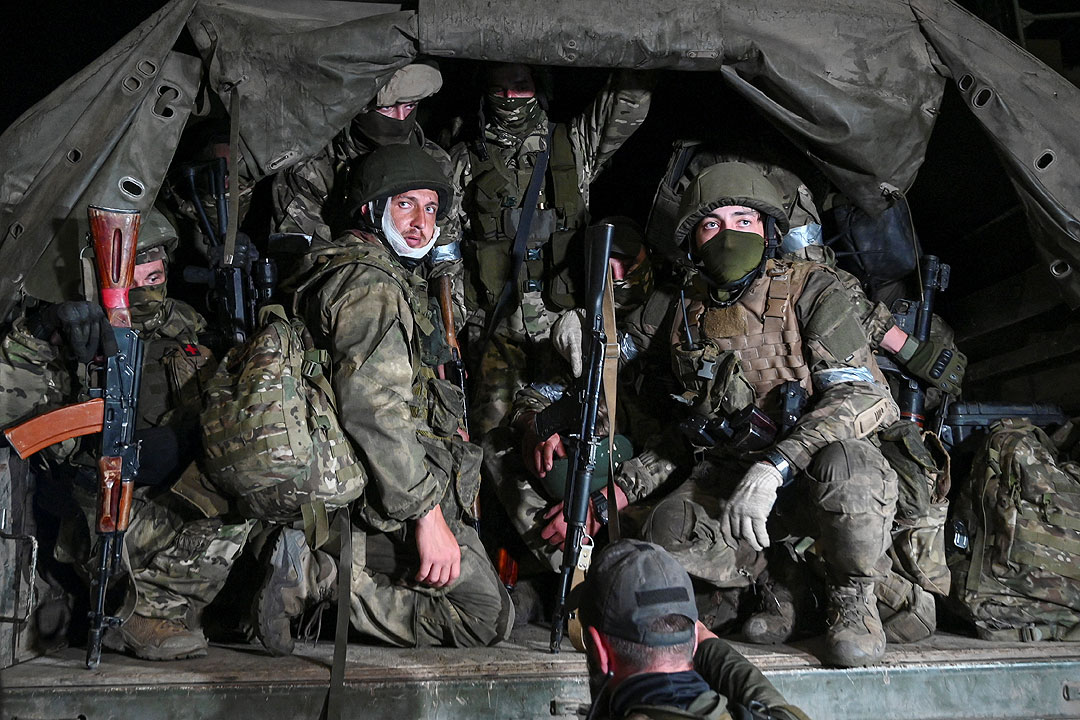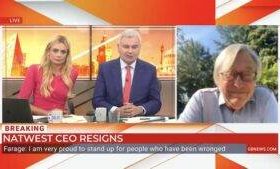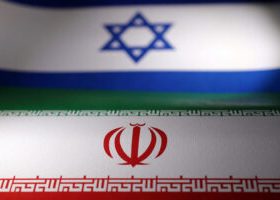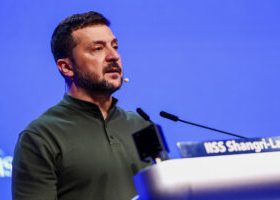ROSTOV-ON-DON/VORONEZH — Heavily armed Russian mercenaries who advanced most of the way to Moscow halted their approach, de-escalating a major challenge to President Vladimir Putin’s grip on power, in a move that their leader said would avoid bloodshed.
Yevgeny Prigozhin, a former Putin ally and founder of the Wagner army, said his men reached within 125 miles (200 km) of the capital on Saturday. Earlier, Moscow deployed soldiers in preparation for their arrival and told residents to stay indoors.
The Wagner fighters captured the city of Rostov hundreds of miles to the south before racing north in convoy, transporting tanks and armored trucks and smashing through barricades set up to stop them, video showed.
On Saturday night, they began withdrawing from the Rostov military headquarters they had seized, a Reuters witness said.
“In 24 hours we got to within 200 km of Moscow. In this time, we did not spill a single drop of our fighters’ blood,” Prigozhin, dressed in full combat uniform at an undisclosed location, said in a video.
“Understanding … that Russian blood will be spilled on one side, we are turning our columns around and going back to field camps as planned.”
Reuters could not independently verify how far Mr. Prigozhin’s mercenaries had reached. Video earlier showed convoys of Wagner vehicles less than 310 miles (500 km) from Moscow.
Kremlin spokesman Dmitry Peskov said that under a deal brokered by Belarus President Alexander Lukashenko, the criminal case opened against Mr. Prigozhin for armed mutiny would be dropped, Mr. Prigozhin would move to Belarus, and Wagner fighters who joined his “march for justice” would face no action, in recognition of their previous service to Russia.
Mr. Peskov, who called the events of the day “tragic,” said Mr. Lukashenko had offered to mediate, with Mr. Putin’s approval, because he had known Mr. Prigozhin personally for around 20 years.
LITTLE PUSHBACK
Wagner’s lightning insurrection appeared to develop with little pushback from Russia’s regular armed forces, raising questions about Mr. Putin’s hold on power in the nuclear-armed nation even after the abrupt halt to Wagner’s advance.
Earlier, Mr. Prigozhin said his “march” on Moscow was intended to remove corrupt and incompetent Russian commanders he blames for botching the war in Ukraine.
In a televised address, Mr. Putin said the rebellion put Russia’s very existence under threat.
“We are fighting for the lives and security of our people, for our sovereignty and independence, for the right to remain Russia, a state with a thousand-year history,” Mr. Putin said, vowing punishment for those behind “an armed insurrection.”
In later outlining the deal brokered by Mr. Lukashenko, Mr. Peskov said the agreement had the “higher goal” of avoiding confrontation and bloodshed.
Mr. Peskov declined to say whether any concessions were made to Mr. Prigozhin, other than guarantees of safety for him — something he said Mr. Putin gave his word to vouch for — and for Mr. Prigozhin’s men, to persuade him to withdraw all his forces.
Ukrainian President Volodymyr Zelensky said the developments, which sparked a flurry of high-level calls between Western leaders, exposed turmoil at the heart of in Russia.
“Today the world can see that the masters of Russia control nothing. And that means nothing. Simply complete chaos. An absence of any predictability,” Mr. Zelensky said in his nightly video address.
EX-CONVICTS IN WAGNER RANKS
The fighters led by Prigozhin, a former convict, include thousands of ex-prisoners recruited from Russian jails.
His men fought the bloodiest battles of the 16-month Ukraine war, including for the eastern city of Bakhmut. He railed for months against the military’s top brass, especially Defense Minister Sergei Shoigu and the chief of the general staff, Valery Gerasimov, accusing them of incompetence and of withholding ammunition from his fighters.
This month, he defied orders to sign a contract placing his troops under Defense Ministry command.
He launched the apparent mutiny on Friday after alleging that the military had killed many of his fighters in an air strike. The Defense Ministry denied this.
He said he had captured the headquarters of Russia’s Southern Military District without firing a shot in Rostov, which serves as the main rear logistical hub for Russia’s entire invasion force in Ukraine.
Residents of the city had milled about calmly, filming on mobile phones as Wagner fighters in armored vehicles and battle tanks took up positions.
Western capitals were closely following the situation. US President Joseph R. Biden spoke with the leaders of France, Germany and Britain, while Secretary of State Antony Blinken spoke to G7 counterparts. The top US military officer, Army General Mark Milley, canceled a scheduled trip to the Middle East.
UKRAINE ATTACKS NEAR BAKHMUT
The insurrection risked leaving Russia’s invasion force in Ukraine in disarray, just as Kyiv is launching its strongest counteroffensive since the war began in February last year.
Some Ukrainians were gleeful at the prospect of a split in Russian ranks 16 months after the Kremlin’s troops invaded their country.
Ukraine’s military said on Saturday its forces made advances near Bakhmut, on the eastern front, and further south.
Deputy Defense Minister Hanna Maliar said an offensive was launched near a group of villages ringing Bakhmut, which was taken by Wagner forces in May after months of fighting.
Oleksandr Tarnavskiy, commander of the southern front, said Ukrainian forces had liberated an area near Krasnohorivka, west of the Russian-held regional centre of Donetsk.
Tarnavskiy said the area had been under Russian control since separatist forces backed by Moscow seized it in 2014. — Reuters






